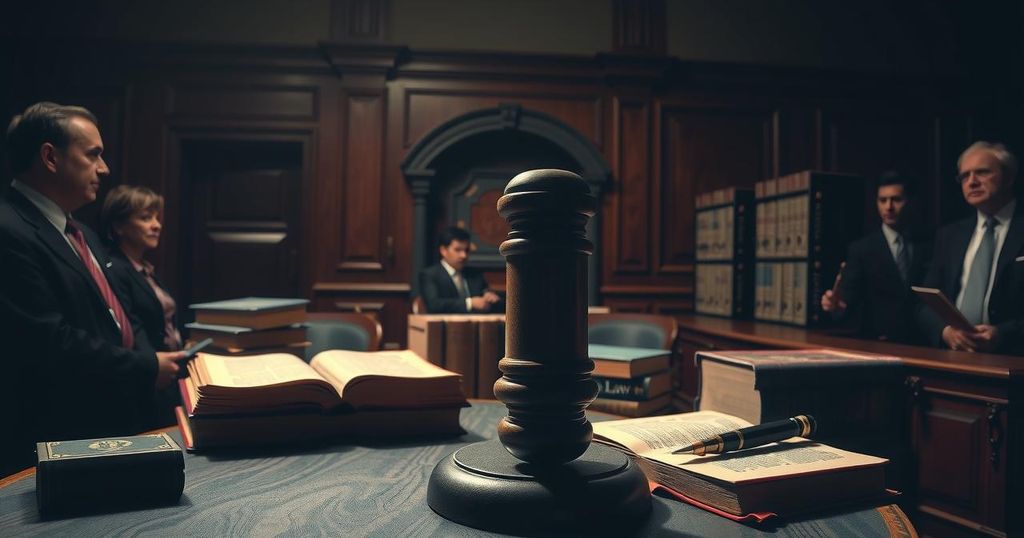Trial of Medical Team in Diego Maradona’s Death Highlights Accountability Issues
Seven medical staff are on trial for homicide related to the death of Diego Maradona, who died post-surgery. They face prison terms for alleged negligence and recklessness in his care. The trial has sparked public outcry for justice, with significant evidence and expert testimonies expected to be presented over the coming months.
The trial of seven medical professionals involved in the care of Diego Maradona, the iconic Argentine footballer, has commenced. They face homicide charges related to Maradona’s death on November 25, 2020, after complications following brain surgery. Over the years, Maradona struggled with substance abuse, and the defendants could face prison terms ranging from eight to 25 years if convicted of “homicide with possible intent.”
Maradona’s death has drawn significant public attention, with fans gathering outside the court demanding justice. Veronica Ojeda, Maradona’s former partner, expressed gratitude to supporters despite being visibly emotional. Meanwhile, Maradona’s daughters, Dalma and Gianinna, entered the courthouse silently, reflecting the family’s grief.
The prosecution has declared its intention to present “solid” evidence, asserting that the medical team’s negligence contributed to Maradona’s tragic fate. Prosecutor Patricio Ferrari emphasized that the actions of the medical team created a “horror theatre” surrounding Maradona’s decline, as illustrated by graphic evidence displayed in court.
Maradona, who had been recovering at home in an upscale Buenos Aires neighborhood, had died of heart failure and acute pulmonary edema shortly after surgery. His passing led to national mourning, with tens of thousands paying tribute during his funeral. Nearly 120 witnesses, including family members and past healthcare providers, are anticipated to testify throughout the trial.
The defendants include a neurosurgeon, psychiatrist, psychologist, medical coordinator, nursing coordinator, a physician, and a night nurse, while the day nurse who discovered Maradona’s body will face a separate jury trial. The prosecution alleges a recklessness in the decision to provide home care, asserting that proper medical oversight could have saved Maradona’s life.
A panel of 20 medical experts concluded that had Maradona received suitable treatment in a medical facility, his chances of survival would have improved significantly. Reports reveal that the home lacked essential medical equipment, such as a defibrillator, which may have been crucial. The family asserts that communications among the medical team indicate a concern to prevent Maradona’s daughters from interfering, focusing instead on financial matters.
As the trial unfolds, the public’s demand for accountability remains strong. Graffiti declaring “Justice for Diego!” adorns walls in Buenos Aires, emphasizing that society seeks to uncover the truth behind Maradona’s care and ensure that those responsible are held accountable. Advocates assert that Maradona deserved better in his final days, expressing that he “did not deserve to die as he died, alone.”
The ongoing trial of several medical professionals involved in the care of Diego Maradona has attracted public scrutiny and underscores issues of medical negligence. As the prosecution builds its case, it aims to demonstrate that the defendants’ actions significantly contributed to Maradona’s death. The trial reflects a broader societal demand for justice and accountability, emphasizing the need for reliable medical care and oversight for vulnerable patients.
Original Source: www.nzherald.co.nz




Post Comment